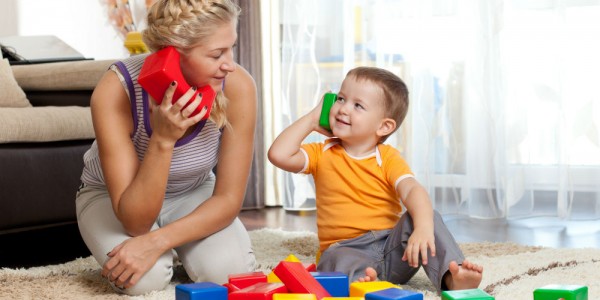- Immediately during the post-adoption period, do not overstimulate the child. Avoid trips to Toy-R-Us, Disneyland, and large gatherings. When exposed to this type of environment children tend to have meltdown or become hyperactive and out-of-control.
- Child should be placed in a well-structured routine. Do not allow the child to become the center of attention
- Families should stay home with child for as long as possible. One parent should be home with the child for the first couple of months. Exposure to both parents is optimal as long as it is as financially feasible. Avoid daycare, nannies, and babysitters immediately after arrival.
- Expose the child only to close family members during the post-adoption period.
- Try to communicate during the first two to three months in the child’s native language.
- Do not try to force the child to learn English right away; it will come in its own time.
- If available, have the child socialize with a child from a similar institutional setting and culture.
- Older children should be enrolled in school as soon as possible.
- Schools usually place these children in “English as Second Language” programs. Insist that the child be placed in mainstream classes. Language will develop rather quickly if the child is exposed to the English language.
- Post-Institutionalized children tend to become fixated on junk food, such as hot dogs, sweets, chips and soda immediately. Let them eat, but not just what they want or like. Set limits. Since they have never had junk food, it often becomes an obsession.
- Initially try to recreate the diet that the children had in the orphanage. Gradually transition them to your family’s diet slowly over time.
- In regards to television, avoid shows that have aggressive tendencies. Disney-type movies are usually calm, have good language, are funny, and have good moral values. Children tend to imitate things that they see. Letting them watch Power Rangers is almost a guarantee to have a Power Ranger in your living room wrecking your furniture very soon.
- Children need to earn activities and privileges based on their daily performances. Good behaviors need to be rewarded and bad behavior needs to be gently punished by taking away privileges like favorite toys or games for short period of times. Never, ever use corporal punishment.
A few more things to consider:
Adopting a post-institutionalized child is a extremely difficult undertaking. If your expectations for international adoption is that all you need to do is to travel overseas to pick up a child, put him into GAP clothing, and expect him to function in our society without problems, then maybe international adoption is not for you.
Consistency and complete dedication towards the best interest of the child are mandatory. The immediate gratification of the parents to form a family unit needs to be delayed temporarily. This will help to promote a good long-term prognosis for the post-institutionalized child.

